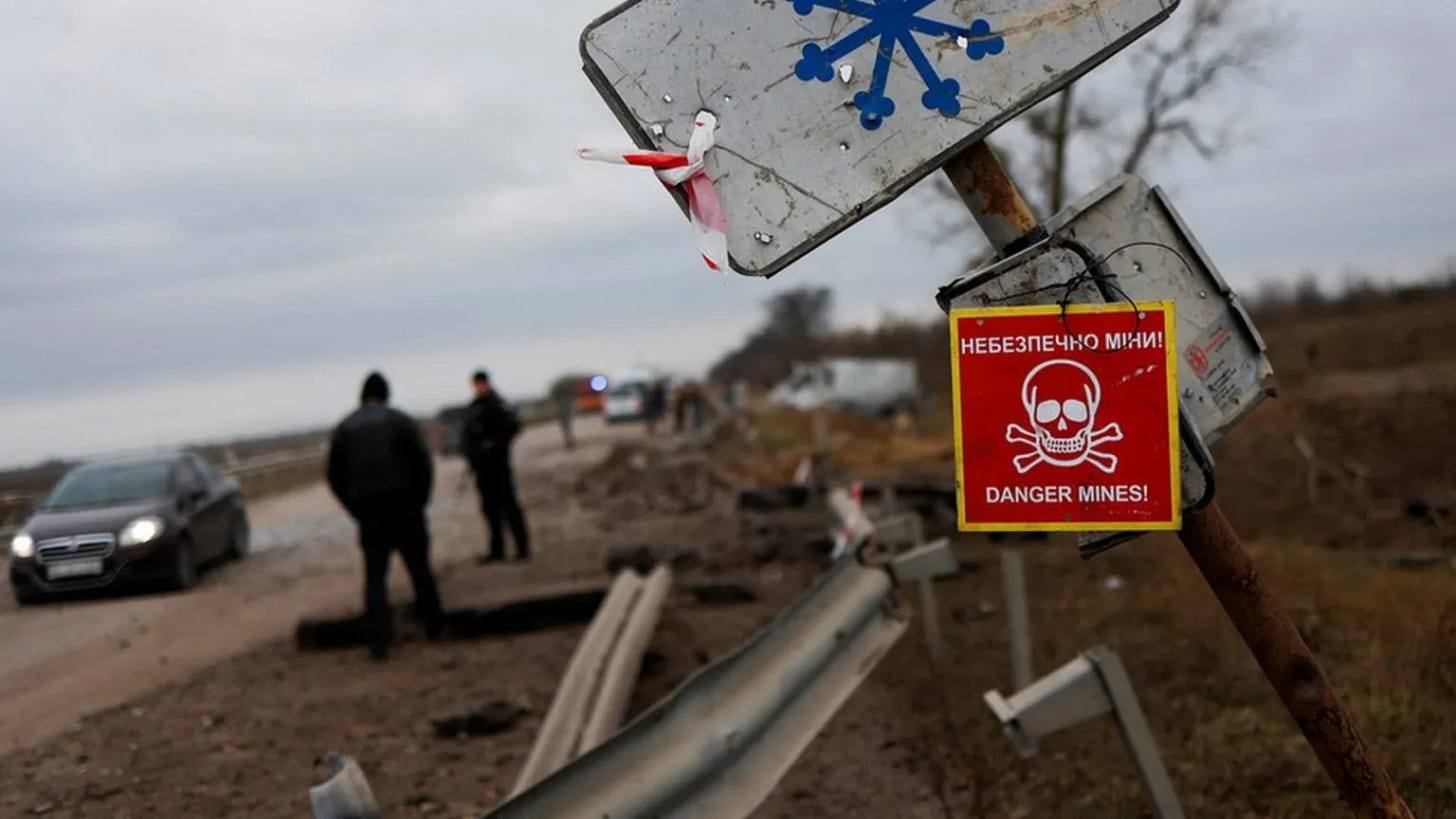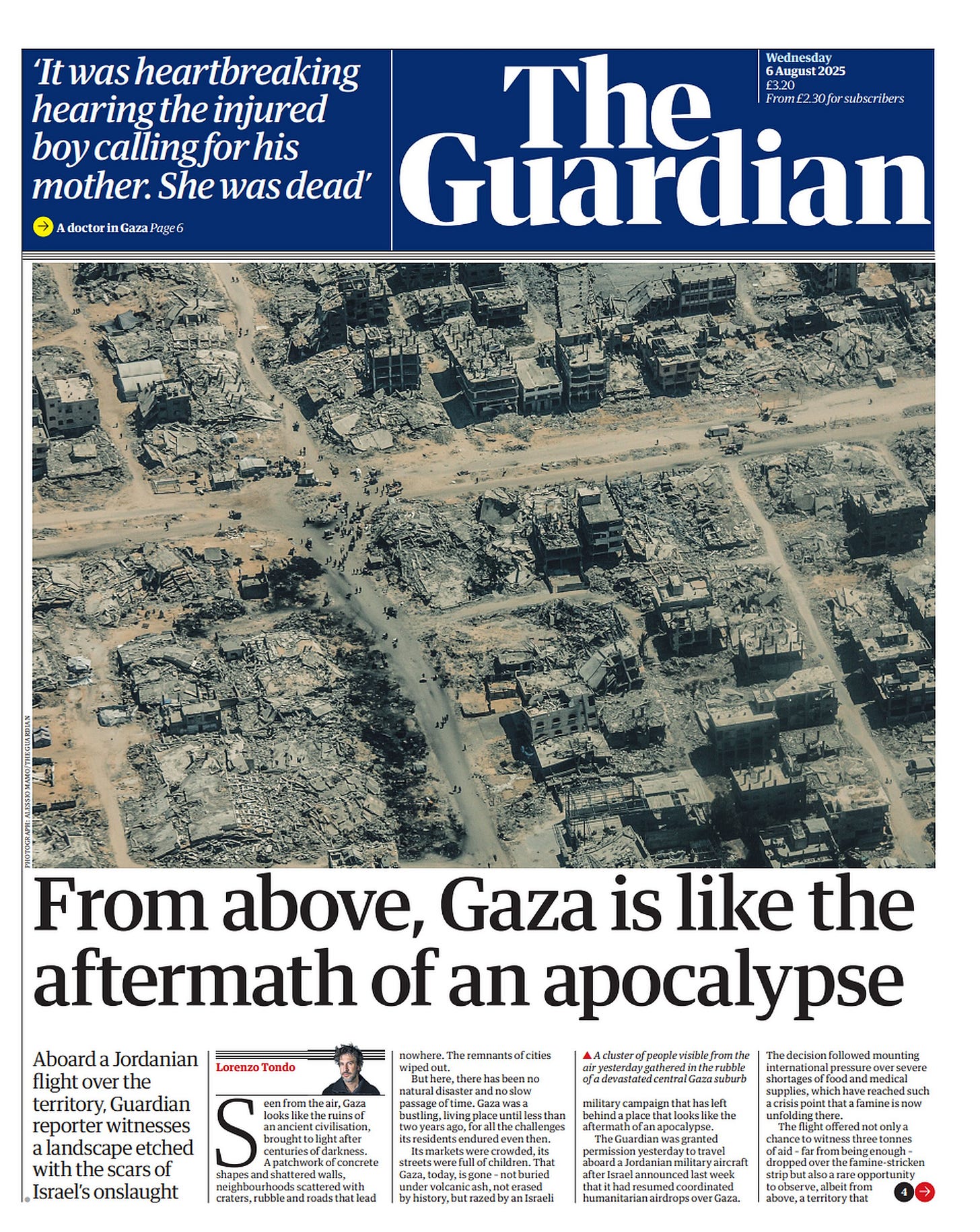Trump’s Bluff Meets Putin’s Resolve: Kremlin Unmoved by Sanctions Threats
Even as Trump doubles tariffs on India for buying Russian oil, Moscow shows no sign of backing down on Ukraine—with powerful allies shielding Putin from pressure.

US special envoy Steve Witkoff met with Russian President Vladimir Putin at the Kremlin on August 6, just two days before an deadline set by the White House for Moscow to stop its war against Ukraine or face additional sanctions. Witkoff and Putin met for about three hours, Russian news agencies cited the Kremlin as saying. There was no immediate comment from either of them, and Putin's press service did not immediately report on details of the talks. While US President Donald Trump has threatened tariffs on Russia and secondary sanctions on countries that are still importing Russian oil -- including its biggest buyers, China and India -- Putin is not expected to halt the war he launched with the full-scale invasion of Ukraine in February 2022. Russian air strikes hit several locations in Ukraine's Zaporizhzhya region early on August 6, including a recreation center, killing two people and injuring 12, military administration chief Ivan Fedorov said on Telegram. Four of the injured were children - RFE/RL
Putin is unlikely to bow to a sanctions ultimatum expiring this Friday from Donald Trump, and retains the goal of capturing four regions of Ukraine in their entirety, sources close to the Kremlin told Reuters. Trump has threatened to hit Russia with new sanctions and impose 100% tariffs on countries that buy its oil - of which the biggest are China and India - unless Putin agrees to a ceasefire in Russia's war in Ukraine. Putin's determination to keep going is prompted by his belief that Russia is winning and by scepticism that yet more U.S. sanctions will have much of an impact after successive waves of economic penalties during 3-1/2 years of war, according to three sources familiar with discussions in the Kremlin. The Russian leader does not want to anger Trump, and he realises that he may be spurning a chance to improve relations with Washington and the West, but his war goals take precedence, two of the sources said. Putin's goal is to fully capture the Ukrainian regions of Donetsk, Luhansk, Zaporizhzhia and Kherson, which Russia has claimed as its own, and then to talk about a peace agreement, one of the sources said. "If Putin were able to fully occupy those four regions which he has claimed for Russia he could claim that his war in Ukraine had reached his objectives," said James Rodgers, author of the forthcoming book "The Return of Russia". - Reuters
US President Donald Trump has issued an executive order on Wednesday hitting India with additional 25% tariff over its purchases of Russian oil, BBC reported. That will raise the total tariff on Indian imports to the United States to 50%. The new rate shall be "effective with respect to goods entered for consumption, or withdrawn from warehouse for consumption, on or after 12:01 a.m. eastern daylight time 21 days after the date of this order", the executive order stated. The US president had earlier warned he would raise levies, saying India "don't care how many people in Ukraine are being killed by the Russian War Machine". "The Russian Federation's actions in Ukraine pose an ongoing threat to US national security and foreign policy, necessitating stronger measures to address the national emergency," according to a White House statement. "India's importation of Russian Federation oil undermines US efforts to counter Russia's harmful activities." Hours afterwards, India called out the US for its duplicity when it came to buying oil from Moscow. Slamming the criticism from the US and the EU over its oil imports from Russia, India said its targeting was "unjustified and unreasonable" in light of continued and substantial Western trade with Moscow, India Today reported.
My hot-take analysis: Donald Trump’s latest attempt to strong-arm Moscow into peace talks with Ukraine is already showing cracks. Hours after he slapped India with an additional 25% tariff—doubling duties on Indian imports to 50%—New Delhi hit back, signaling it won’t curb its massive Russian oil purchases. This underscores a deeper problem: the Kremlin isn’t budging. Putin has made it clear he’s in this for the long haul—aiming to cement control over four partially occupied Ukrainian regions, shrink Ukraine’s military, dodge reparations, and secure recognition of its illegal occupation of Crimea. With backing from India, China, Iran, and North Korea, Moscow has little reason to fear Trump’s Friday deadline for “peace or sanctions.” In short: threats and tariffs may sting, but they won’t force Putin to retreat.
“From its vast grain fields to its rural hamlets, from theatres to its railway stations, Ukraine now holds the unenviable title of being one of the most severely landmine contaminated places in the world. Only the reckless would make predictions about the future of the conflict. But whatever the talks amount to or finally deliver, there is one unavoidable truth: the landmines in Ukraine will one day need to be removed” - The HALO Trust CEO and former British General James Cowan
U.S. Health Secretary Robert F. Kennedy Jr. announced plans Tuesday to cancel $500 million in vaccine development projects. In a statement from his office, the longtime vaccine critic said all projects to be halted use mRNA technology. “After reviewing the science and consulting top experts at NIH and FDA, HHS has determined that mRNA technology poses more risk than benefits for these respiratory viruses,” Kennedy said in a video posted on social platform X, referring to Covid-19 and flu mRNA vaccines. The secretary has long been suspicious of the mRNA vaccine platform. The planned cancellation of contracts includes work with Emory University and Tiba Biotech. Proposals from Pfizer, Sanofi Pasteur, CSL Seqirus, Gritstone and others will also be rejected, according to HHS. Rick Bright, who led HHS’s Biomedical Advanced Research and Development Authority, or BARDA, from 2016 to 2020 — and criticized the Trump administration’s early Covid response — slammed the decision, calling it a “huge strategic misstep.” “This decision signals a dangerous complacency,” Bright said in a text. “Disinvesting from mRNA strips us of one of the fastest tools we have to contain the next pandemic, natural or deliberate. Pulling back from proven medical countermeasure platforms at a time of escalating global bio‑risks deeply compromises national security.” HHS said the cancellations impact 22 projects worth nearly $500 million — however, some contracts in their final stage will be “allowed to run their course to preserve prior taxpayer investment.” - Politico
At least 135 Palestinians, including 87 aid seekers, have been killed and 771 injured in Israeli attacks across Gaza in the past 24 hours, according to the enclave’s Health Ministry. The number of people who starved to death in the enclave during Israel’s war has risen to 193, with the five new confirmed hunger-related deaths coming in the past 24 hours, the ministry says. UN Assistant Secretary-General Miroslav Jenca told the UN Security Council that Israeli Prime Minister Benjamin Netanyahu’s reported push to occupy Gaza fully is “deeply alarming”. European Commission Vice President Teresa Ribera also described the plan as an “unacceptable provocation”. United States President Donald Trump said it is “pretty much up to Israel” to decide if it proceeds - Al Jazeera
Rwanda agreed to take as many as 250 migrants deported from the US, part of efforts across the continent to placate Washington in the face of tariff threats and travel bans. Eswatini and South Sudan have reached similar deals with the Trump administration, while several other nations have offered commodities access in exchange for preferential treatment from Washington. However, US President Donald Trump’s threats risk pushing the continent to deepen ties with China — Africa’s biggest trading partner — the European Union, and Gulf nations. As viable alternatives to the US emerge, “countries in Africa are no longer willing to act as subcontractors,” Foreign Policy wrote - Semafor
A top Turkish intelligence body has warned that the recent Israel-Iran standoff continues to pose a serious risk of regional escalation, underscoring the urgent need for sustained “diplomatic initiatives” with Tehran over its nuclear programme. It also said that cyber warfare and digital manipulation of public opinion are now at the heart of modern conflicts—a dramatic shift from traditional, conventional battles to complex, multi-dimensional warfare. “Cyber, electronic, and cognitive warfare, which have become leading factors in shaping the battlefield of the 21st century, are no longer independent domains, but are now intertwined and indispensable elements of integrated operational planning,” the 58-page report adds. The 12-day military confrontation between the arch enemies saw Israel and Iran trade missile barrages that hit key cities and military installations in the two countries. The war also dragged in the US when it bombed Tehran’s nuclear facilities before brokering an uneasy truce between the warring nations. The report notes that Iran aimed to counter Israel’s air superiority with years of investment in ballistic and hypersonic missiles. Despite its technological edge, Israel failed to intercept several of these Iranian missiles. “Some of these [missiles] caused significant damage and loss of life in various parts of Israel, particularly in Tel Aviv and Haifa,” the report says, revealing a setback in Israel’s deterrence capacity. Iranian missiles struck several Israeli air bases, Ben Gurion Airport, power plants in Tel Aviv, oil refineries and the port area in Haifa, as well as key communication and transportation hubs across central Israel. The report underscores Israel’s targeted assassinations of Iran’s top military and intelligence leaders, as well as key nuclear scientists, revealing the depth of its human intelligence and covert networks inside Iran. During the conflict, Iran lost several senior commanders—including Armed Forces Chief of Staff Mohammad Bagheri, Revolutionary Guard Commander Hossein Salami—and top nuclear scientists. This operational reach, the report argues, “demonstrated how modern intelligence structures can shape the outcome of war.” The report points to Iran’s attempt to block WhatsApp as evidence that cyber and electronic warfare were used extensively—not only against military targets, but also to manipulate public opinion through propaganda - TRT World
A man who lit a cigarette from a memorial flame at a famous war monument in Paris has been arrested, according to France's interior minister. A video posted on social media shows a man stooping to light a cigarette from the flame at the Tomb of the Unknown Soldier under the Arc de Triomphe, before walking away. The incident took place on Monday evening and the man was arrested on Tuesday afternoon, according to police. The alleged culprit has not been identified. France's Interior Minister Bruno Retailleau said the act was "indecent and pathetic.” "The man who desecrated the Tomb of the Unknown Soldier by lighting a cigarette with the memorial flame was arrested in Paris for violating a burial site, tomb, urn, or monument erected in memory of the dead. He was taken into custody and admitted the facts," Retailleau wrote on X on Tuesday. The video of the incident was filmed by a Latvian tourist and first posted to TikTok, according to Le Figaro newspaper. The tourist told the paper that the man did not appear drunk and seemed to be fully aware of his actions - Euronews




